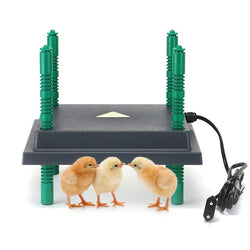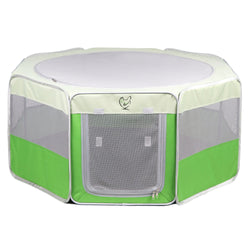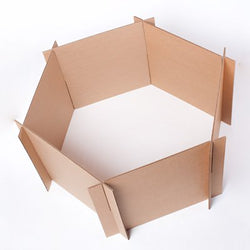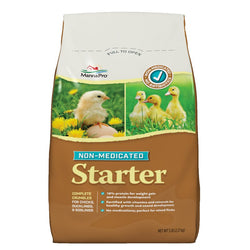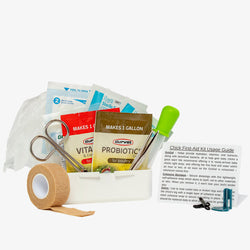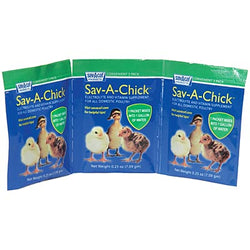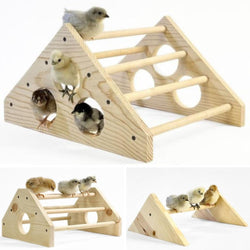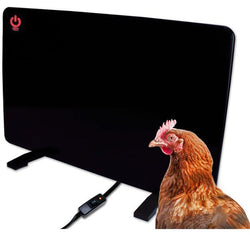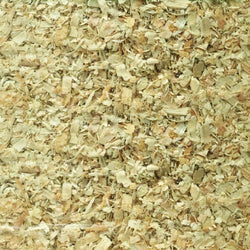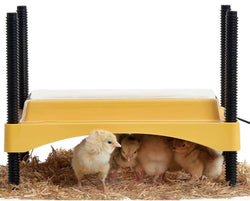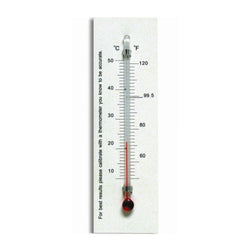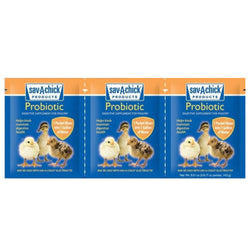All about Nutritional Myopathy disease
Back to blog
Nutritional Myopathy--which can cause chickens to have muscular degeneration or slowed growth--is caused by a lack of vitamin E, along with a deficiency of methionine and cysteine in a flock's diet. To prevent this from happening to your flock, make sure you feed them a complete, nutritionally-balanced feed, and not just scratch or kitchen scraps. Read on to find out more.
Nutritional Myopathy Also called
White muscle disease, Nutritional Muscular Dystrophy
Prevalence
Uncommon
Signs
General signs -
Muscular degeneration, slow growth.
Cardinal or diagnostic signs -
Muscular degeneration occurs primarily in breast and legs. Necropsy shows white muscle striations.
Cause/s
Vitamin E deficiency paired with a deficiency in methionine and cysteine.
Communicability
Not communicable, but many members of a flock may share this problem if they're on the same deficient feed.
Communicability to humans
No.
Incubation period
None, but as a deficiency, it takes some time to develop.
Latent
No
Endemic
No
Home treatment and/or prevention
Prevention: Provide a good, fresh, nutritionally-balanced feed for your flock. Don't make the mistake of offering something like scratch only, or kitchen scraps only.
Treatment: Supplement with vitamin E, Selenium, and the amino acids methionine and cysteine
Veterinary care
A vet can diagnose this problem and suggest good supplements.
Recovery
If the illness is not too far advanced, birds will recover completely with proper nutrition.
Other conditions, illnesses and/or diseases with similar signs:
Can be mistaken for other illnesses causing slow growth or leg problems.
Also consider browsing through this list of other chicken illnesses with neurological symptoms.
Nutritional Myopathy Also called
White muscle disease, Nutritional Muscular Dystrophy
Prevalence
Uncommon
Signs
General signs -
Muscular degeneration, slow growth.
Cardinal or diagnostic signs -
Muscular degeneration occurs primarily in breast and legs. Necropsy shows white muscle striations.
Cause/s
Vitamin E deficiency paired with a deficiency in methionine and cysteine.
Communicability
Not communicable, but many members of a flock may share this problem if they're on the same deficient feed.
Communicability to humans
No.
Incubation period
None, but as a deficiency, it takes some time to develop.
Latent
No
Endemic
No
Home treatment and/or prevention
Prevention: Provide a good, fresh, nutritionally-balanced feed for your flock. Don't make the mistake of offering something like scratch only, or kitchen scraps only.
Treatment: Supplement with vitamin E, Selenium, and the amino acids methionine and cysteine
Veterinary care
A vet can diagnose this problem and suggest good supplements.
Recovery
If the illness is not too far advanced, birds will recover completely with proper nutrition.
Other conditions, illnesses and/or diseases with similar signs:
Can be mistaken for other illnesses causing slow growth or leg problems.
Also consider browsing through this list of other chicken illnesses with neurological symptoms.
